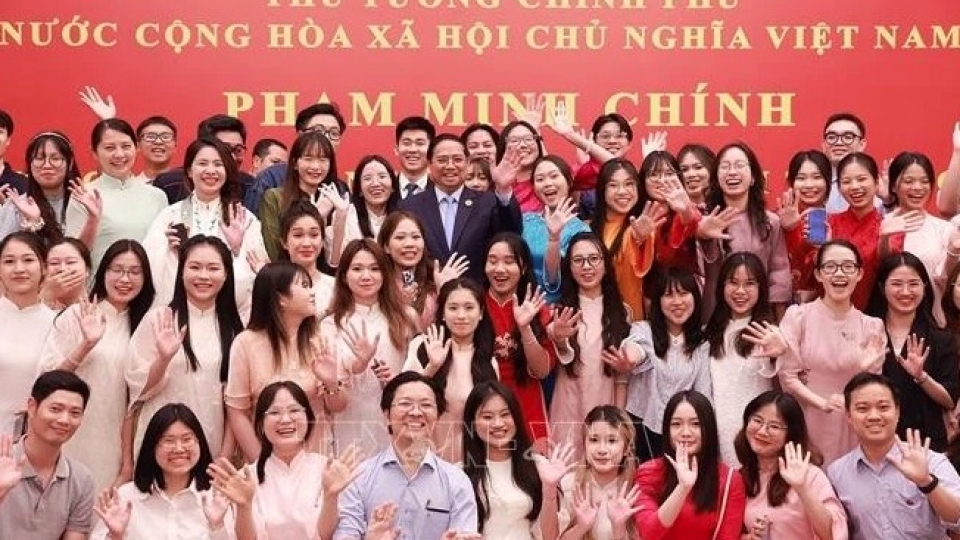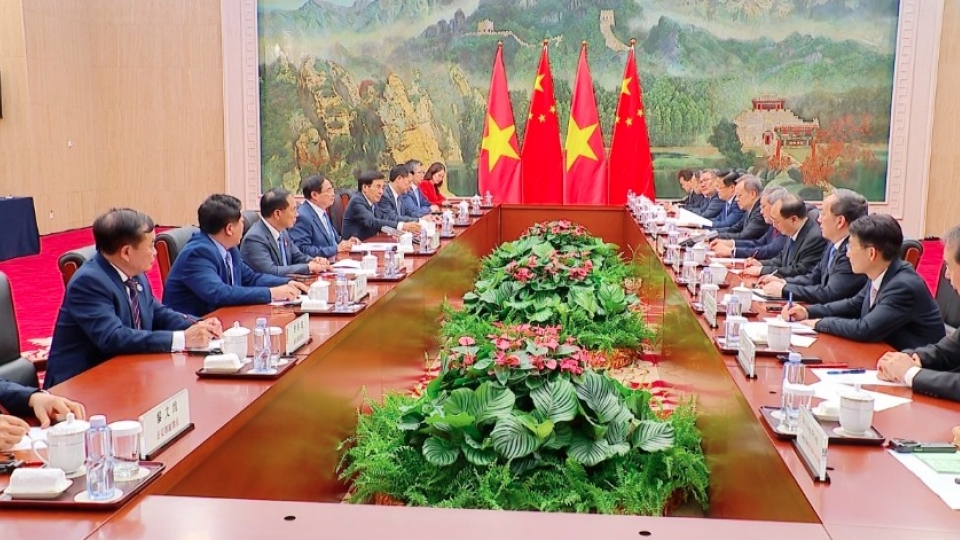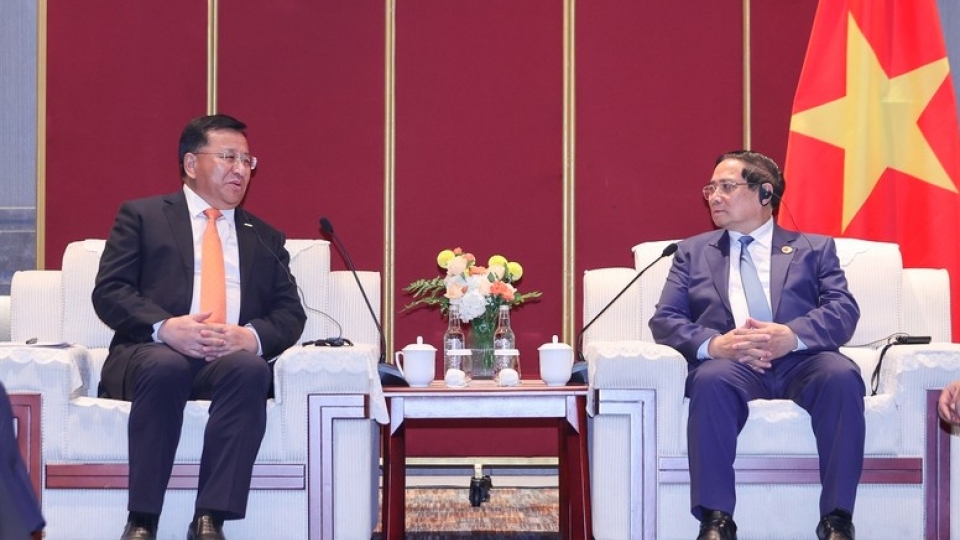PM Chinh puts forward key proposals, urges stronger leadership role for WEF
VOV.VN - Prime Minister Pham Minh Chinh proposed five strategic priorities for Asia and put forward two initiatives at a panel discussion titled "“Is Asia's Century at Risk?" held on June 25 in Tianjin, China.
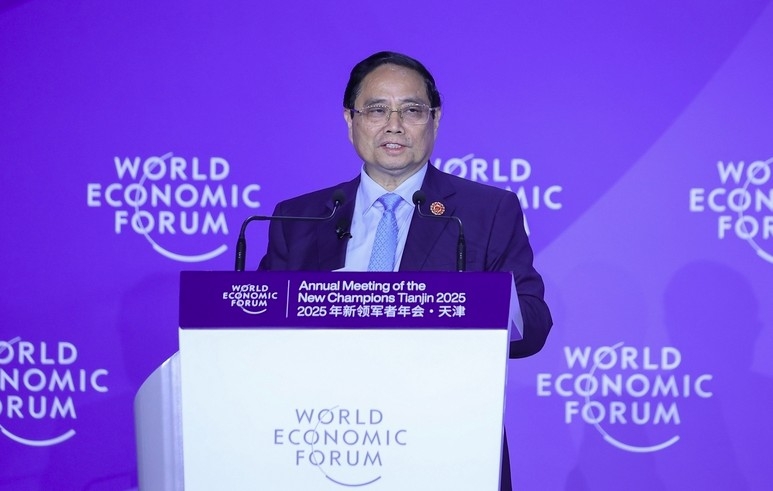
The event was part of his attendance at the 16th Annual Meeting of the New Champions of the World Economic Forum (WEF Tianjin).
The Prime Minister's two initiatives included establishing an Asian innovation network that promotes WEF and China’s leadership in connecting research institutes, universities, and enterprises; and building an Asian Innovation Portal-an online platform providing practical and effective support for small and medium-sized enterprises (SMEs) and startups.
Addressing the discussion, the Vietnamese Government chief noted that the world today faces unprecedented uncertainties, characterized by political polarization, economic fragmentation, institutional division, and development disparities.
Asia, he said, is confronted with multiple major challenges and risks, including geopolitical tensions, protectionism, inflationary pressure, economic slowdown, natural disasters, epidemics, climate change, resource depletion, aging populations, and social instability.
However, he emphasized that Asia still has plenty of opportunities and advantages, including its geostrategic position, robust economic growth potential, a growing middle class, declining poverty, improved infrastructure, public services, and financial systems, as well as stable social structures. Asia, he said, is actively striving to integrate with other regions and contribute to global stability and prosperity.
He also expressed confidence in Asia’s foundations and resilience, grounded in its political, economic, cultural, and social strengths. With more than half a century of constant renewal and integration, Asia has accumulated capacity, strength, determination, and valuable experience to overcome crises and challenges. He underscored the importance of unity and cooperation, believing that Asia can act together to stay resilient, innovate together to shape the future, and grow together to ensure no one is left behind.
PM Chinh affirmed that Asia has sufficient foundations to rise further and consolidate its role as a pillar and locomotive of the global economy. These include strong internal resources, a resilient spirit, and distinct cultural identity. Within this process, China as the world's second-largest economy, holds a particularly important position.
"With its global influence, Asia looks to and trusts China to remain a key pillar in spurring global development, enhancing connectivity, spearheading future-oriented initiatives, and demonstrating great-power responsibility in the face of challenges," Prime Minister Chinh said.
To build a prosperous, sustainable Asian century, he proposed five strategic priorities. First, Asia must lead in steadfastly upholding peace, stability, cooperation, and development, and in safeguarding core principles of international relations. He called for active dialogue, dispute management, and expanded cooperation within and beyond the region; a commitment to multilateralism and international law; strengthened trust and solidarity to make Asia a reliable anchor of global stability
Second, Asia must take the lead in science, technology, innovation, digital transformation, and green transition, laying the foundation for breakthrough, inclusive, and sustainable development. He called for a shift from "the world's factory" to a "global innovation hub."
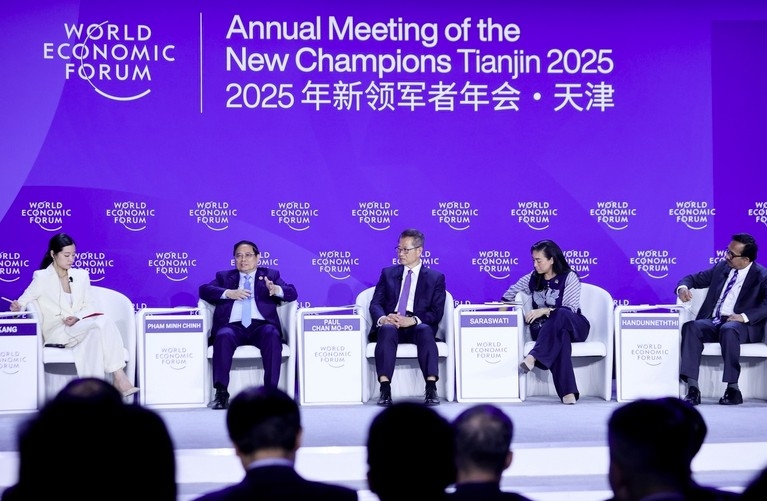
Third, Asia should be at the forefront of value chain connectivity, economic integration, and global engagement. The region must shape a new cooperative paradigm: "go together, arrive together, act together, benefit together, and succeed together," based on harmonized benefits and shared risk.
Fourth, Asia should take the way in promoting entrepreneurship, innovation, and business development, with efforts to improve the investment and business climate, ensure transparency, and enhance international competitiveness. In this regard, WEF plays an especially important role in attracting global businesses and investors to Asia.
Fifth, Asia should play a pioneering role in strengthening cultural and social connectivity, keeping people at the center of every policy and strategy. This includes respecting diversity, fostering unity in difference, promoting common ground, and ensuring inclusive, broad-based engagement, especially among the youth.
The Prime Minister reaffirmed Vietnam’s readiness to actively participate in and strongly encouraged WEF, China, and other partners to support and help realize these initiatives. He expressed confidence that, with solidarity, responsibility, trust, determination, and decisive action, the Asian Century will not be a challenge but an opportunity to shape a brighter future of peace, cooperation, and shared prosperity.
Following his speech, PM Chinh joined panelists to exchange views on global developments and regional responses to common challenges. He laid stress on the need for resilience, perseverance, and a steadfast commitment to peace, cooperation, and development; as well as the importance of ensuring equity and social welfare so that no one is left behind. He viewed the current context as a chance for nations to reflect, reassess global relations, and restructure their economies to improve productivity, competitiveness, and adaptability to external shocks. The greater the pressure, he said, the greater the effort required to rise.
He also underscored the importance of unity, multilateralism, and core national values. Every process, he noted, needs leadership, direction, and sacrifice. Building an independent, self-reliant economy while actively and effectively engaging in international integration is a common trend, but countries must ensure that what benefits them also benefits Asia and the world.
Responding to a question on soft power, the Vietnamese Government chief said it lies in effectively leveraging hard power and available advantages to generate greater added value. For Vietnam, the concept of soft power encompasses a sound development vision and ideology, national competitiveness shaped by institutions, rich cultural and historical traditions, unity and cohesion, capable Party leadership, and the aspiration to contribute, especially through tapping into the energy of young people, the public, and businesses.
The discussion concluded successfully with a strong consensus on the need for closer cooperation and a shared commitment to building a more developed and prosperous Asia. Prime Minister Chinh’s remarks left a strong impression on the participants.


